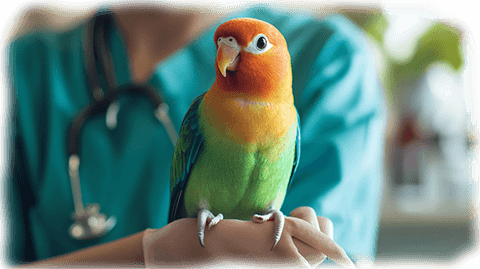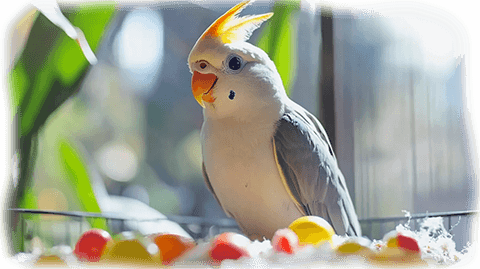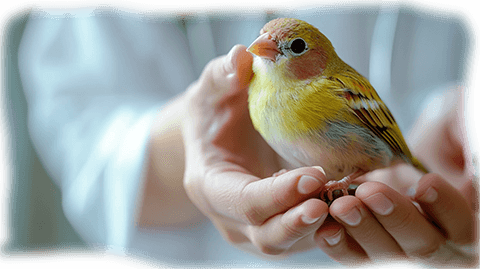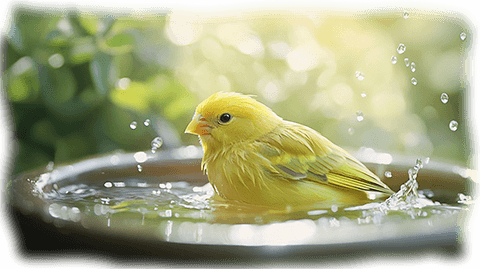Budgie Health: Comprehensive Care and Helpful Tips for Keeping Your Budgie Healthy
Budgies, also known as parakeets, are lively and colorful birds that make wonderful companions. However, their small size can be deceiving—budgies require consistent care and attention to stay healthy and happy. Their diet, environment, and mental stimulation are just as important as for larger pets. Whether you’re a new or experienced budgie owner, this guide covers common health issues, prevention tips, and how to create the perfect living space for your feathered friend.
Common Health Issues in Budgies
Despite their hardiness, budgies are prone to specific health problems that can escalate if unnoticed. Early intervention and preventive care are key to ensuring they lead long, healthy lives.
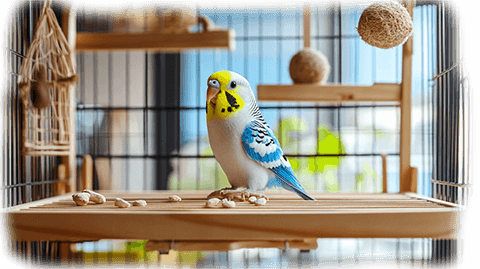
Respiratory Infections
Budgies have sensitive respiratory systems and are susceptible to infections caused by poor air quality, mold, or irritants like cigarette smoke. Symptoms include labored breathing, wheezing, and tail bobbing (where the tail moves rapidly up and down as the bird struggles to breathe). To prevent respiratory infections, always keep your budgie’s environment well-ventilated, avoid placing the cage near strong odors or drafts, and clean the cage regularly to reduce dust and mold accumulation.
Psittacosis (Parrot Fever)
This bacterial infection can spread from birds to humans and can be fatal if untreated. Symptoms in budgies include watery green droppings, lethargy, ruffled feathers, and difficulty breathing. Prevention involves maintaining a clean and low-stress environment. Should you notice any symptoms, immediate veterinary attention is required for testing and antibiotic treatment. Psittacosis is preventable with proper hygiene and regular health checks.
Obesity
Overfeeding or an unbalanced diet high in seeds can lead to obesity in budgies, contributing to health issues like fatty liver disease and heart problems. You can detect obesity by observing reduced activity, difficulty flying, and fat deposits around the breastbone. A balanced diet consisting of pellets, fruits, and vegetables is crucial (Amazon affiliate link), along with regular exercise through flying and play. Limiting seeds, which are high in fat, can help prevent obesity.
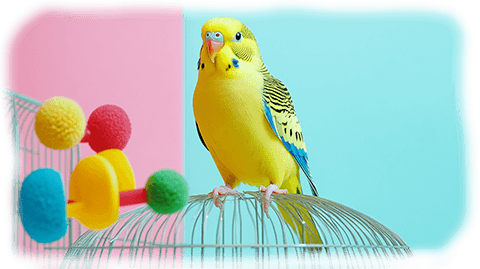
Feather Plucking
Feather plucking is often a sign of stress, boredom, or skin irritation caused by parasites such as mites. If your budgie starts plucking its feathers, first rule out medical causes like skin irritation or parasites. Then, address emotional factors by enriching their environment with toys, perches, and social interaction. Preventing boredom through mental stimulation and ensuring their cage is clean and comfortable will help avoid feather plucking.
Egg Binding
Female budgies can experience egg binding, a serious condition where an egg becomes stuck inside the bird, often due to a lack of calcium. Symptoms include a swollen abdomen, straining, lethargy, and a fluffed-up appearance. Ensuring your budgie has access to calcium-rich supplements like cuttlebone is essential. If you suspect egg binding, prompt veterinary care is necessary to avoid life-threatening complications.
Essential Budgie Care
Daily care routines and the right living conditions are essential for your budgie’s health. Here’s how to maintain a healthy, thriving environment for your pet:
Balanced Diet
A budgie’s diet should be a well-rounded mix of seeds, pellets, fresh fruits, and vegetables. (Amazon affiliate link) While seeds are part of their natural diet, they are high in fat, so they should make up no more than 50% of the diet. Supplement their diet with fresh vegetables like spinach, carrots, and broccoli, and fruits like apples and berries. Avoid giving them avocados, onions, or chocolate, as these are toxic to birds. Calcium sources like cuttlebone are also important for bone and beak health.
Fresh Water
Your budgie needs constant access to clean water. (Amazon affiliate link) It’s essential to change the water daily to prevent contamination from food particles, droppings, or bacteria, which can cause infections.
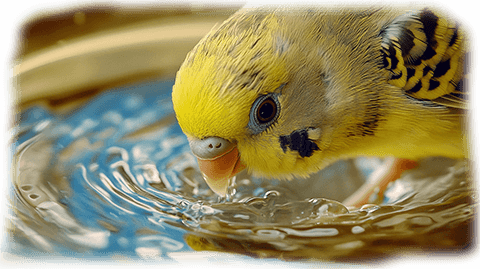
Cage Setup
Budgies are active birds that require space to fly and play. The minimum recommended cage size for a single budgie is 18×18 inches, (Amazon affiliate link) though bigger is always better. Perches of varying textures help prevent foot problems, while toys like ladders, swings, and bells keep them entertained and mentally stimulated. A clean, well-organized cage is crucial to preventing diseases, especially respiratory infections. Regular cleaning to remove droppings and old food is vital.
Exercise and Mental Stimulation
Budgies are naturally energetic and love to fly. Allowing them daily supervised flight time outside the cage in a safe area will help maintain their physical health. In addition to flight, rotating toys regularly will prevent boredom. Puzzle feeders, foraging toys, and even mirrors can keep their minds active and engaged.
Social Interaction
Budgies are social creatures. If kept alone, they will depend on you for socialization, which includes talking to them, playing, and spending time together daily. If you have more than one budgie, they will bond with each other, but human interaction remains essential to keep them tame and happy.
Regular Veterinary Check-ups
Birds are notorious for hiding illness until it becomes severe. Regular check-ups with an avian vet can help catch problems early. Annual vet visits are recommended to assess their overall health, diet, and environment, allowing for early intervention if any issues arise.
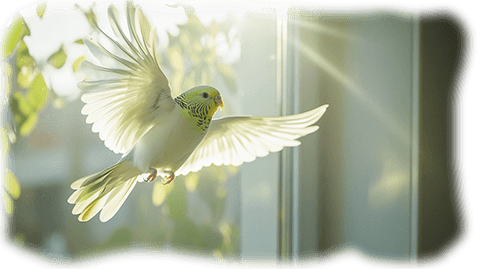
Signs of a Healthy Budgie
Knowing the signs of a healthy budgie can help you detect early changes that might indicate illness. A bright-eyed, active budgie with smooth feathers, clear breathing, and well-formed droppings is generally in good health. Changes in behavior, appetite, or physical appearance are warning signs that require veterinary attention.
Conclusion—Prioritizing Your Budgie’s Health
Caring for a budgie requires more than just basic feeding and caging. By providing a balanced diet, a clean and stimulating environment, regular exercise, and veterinary care, you can ensure your budgie stays healthy and joyful. Pay close attention to their behavior and look out for common health issues to keep them in the best shape. With the right care, your budgie will continue to brighten your home with their lively personality for years to come.
Further reading: “BUDGIES CARE: A comprehensive guide on how to care, groom, feed, train and house budgies with tips on how to raise a happy and healthy pet” (Amazon affiliate link) by Nathan Ark.
Affiliate Disclosure
This post may contain affiliate links, which means I earn from purchases made through links. Please see the privacy policy page for more details.

